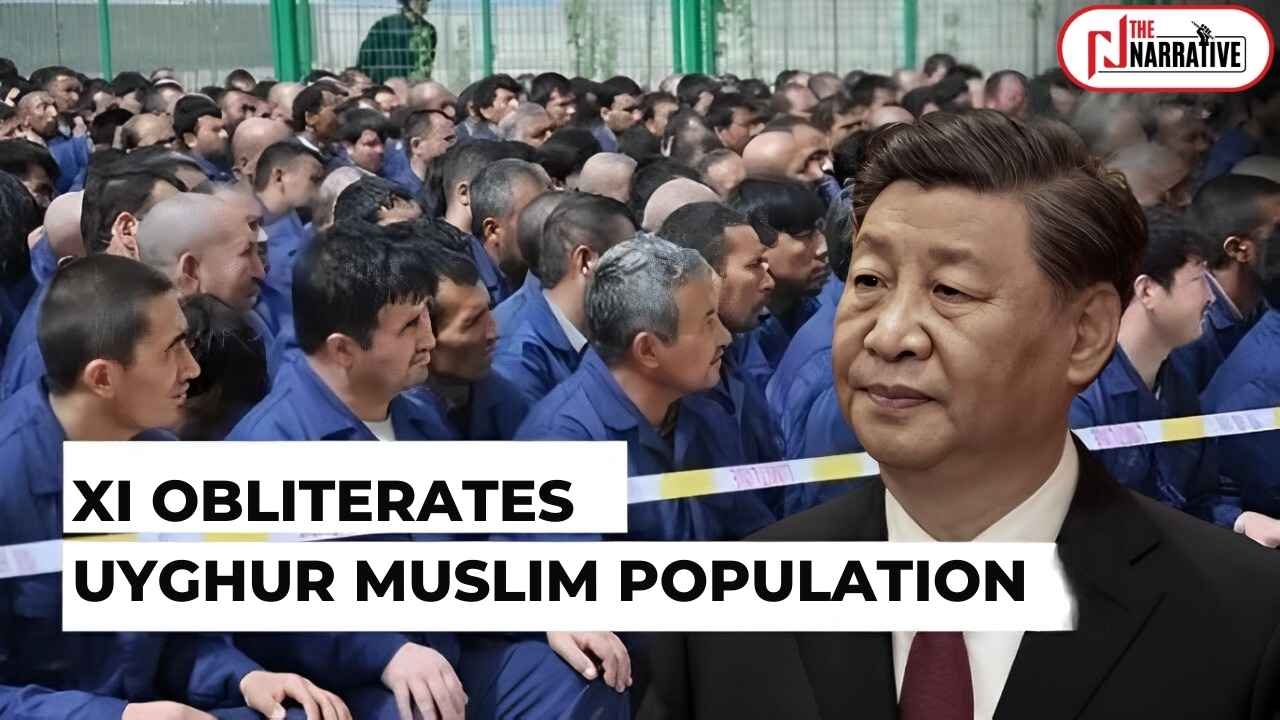Xi Jinping’s Ethnic Cleansing: Uyghur Muslims Targeted
07 Oct 2024 00:05:05

The Uyghur Muslim population in China has been subjected to a series of alarming human rights violations under Xi Jinping’s administration, marking one of the largest-scale detentions of ethnic and religious minorities since World War II.
The crackdown in the Xinjiang region has drawn worldwide condemnation, particularly for its systematic targeting of Uyghurs, a predominantly Muslim, Turkic-speaking ethnic group.
These acts, orchestrated by the Chinese Communist Party (CCP), have been widely characterized as crimes against humanity and even genocide.
The detainment of over one million Uyghurs in so-called "reeducation" camps began around 2017. These camps, described as vocational training centres by the Chinese government, are, in reality, internment camps where Uyghurs are subjected to forced indoctrination, surveillance, and extreme physical and psychological abuse.
The detainees often have no formal charges against them, with many targeted merely for practising Islam, attending mosques, or maintaining contact with individuals outside China, especially in Muslim-majority countries.
These individuals, whose only crime may be their faith or ethnic identity, have been labelled as extremists by the government in what appears to be a gross misuse of anti-terrorism measures.
Inside the camps, conditions are dire. Detainees are forced to renounce Islam, pledge loyalty to the CCP, and undergo cultural erasure as part of Xi Jinping's larger campaign of "Sinicization" — an effort to forcibly integrate Uyghurs into mainstream Han Chinese culture.
Reports of torture, sleep deprivation, and forced sterilizations of Uyghur women have surfaced. Disturbingly, accounts of sexual violence, including rape by prison guards, have also emerged. Many women have reported forced IUD insertions and other measures to drastically reduce the birth rate of Uyghur Muslims.
Beyond the camps, Uyghurs living outside these detention centres are subjected to one of the most extensive surveillance systems in the world. Facial recognition, phone tracking, and artificial intelligence tools monitor every aspect of their lives.
Children whose parents have been detained are sent to state-run orphanages, where they are raised devoid of their cultural or religious identity, further perpetuating the systematic erasure of Uyghur culture.
The Chinese government has sought to justify these actions as part of a broader "counter-terrorism" campaign, claiming it is necessary to maintain national security and prevent separatist activities in the resource-rich Xinjiang region.
However, this narrative has been widely discredited by international human rights groups and the UN, which have characterised the CCP’s actions as egregious violations of basic human rights.
Xi Jinping's role in these atrocities cannot be overstated. Leaked documents have directly implicated the Chinese President in the planning and execution of this brutal crackdown.
His administration’s policies have not only destroyed Uyghur families and culture but have also raised serious concerns about the CCP’s broader intentions regarding ethnic minorities in China.
International pressure has been mounting on China, with various countries, including the United States, labeling the repression of Uyghurs as genocide.
Still, Xi Jinping and the CCP continue to deny any wrongdoing, dismissing the global outrage as part of a smear campaign led by Western nations.
In conclusion, Xi Jinping's policies towards Uyghur Muslims are among the most egregious examples of state-sponsored ethnic persecution in modern history.
His government’s actions have caused immense suffering, marking a dark chapter not only in China’s history but also in the global fight for human rights.
The world must continue to call out these atrocities and push for justice for the Uyghur people.
Article by
Shomen Chandra
Sub Editor, The Narrative